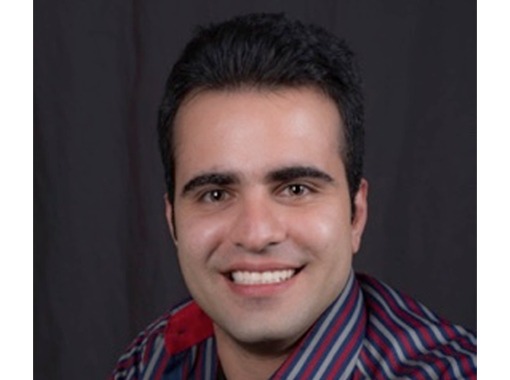Doctoral defence in Civil Engineering - Milad Kowsari

Aðalbygging
The Aula
Ph.D. student: Milad Kowsari
Dissertation title: Bayesian Inference of Empirical Ground Motion Models to Icelandic Strong-motions and Implications for Seismic Hazard Assessment
Opponents:
Dr. John Douglas, Chancellor’s Fellow at the Centre for Intelligent Infrastructure, Department of Civil and Environmental Engineering, University of Strathclyde, Glasgow, Scotland
Dr. Fabrice Cotton, Professor at the Institute of Geosciences, University of Potsdam & Head of section 2.6 “Seismic Hazard and Stress Field”, GFZ German Research Centre for Geosciences, Potsdam, Germany
Advisor: Dr. Benedikt Halldorsson, Research Professor, at the Faculty of Civil and Environmental Engineering at the University of Iceland & Geoscience Research Group, Division of Processing and Research, Icelandic Meteorological Office, Reykjavik, Iceland
Doctoral committee:
Dr. Sigurjón Jónsson, Professor at the King Abdullah University of Science and Technology, Saudi Arabia
Dr. Birgir Hrafnkelsson, Professor at the Faculty of Physical Sciences at the University of Iceland
Dr. Jónas Þ. Snæbjornsson, Professor at the School of Science and Engineering, Reykjavík University, Iceland
Chair of Ceremony: Dr. Bjarni Bessason, Professor at the Faculty of Civil and Environmental Engineering at the University of Iceland
Abstract:
Iceland is seismically the most active region in northern Europe. However, developing earthquake ground motion models (GMMs) for Iceland, that are key components in probabilistic seismic hazard assessment (PSHA) for seismic design, is challenging due to a relatively small strong-motion dataset. Many hazard studies have therefore used GMMs originally developed for other countries. However, these GMMs exhibit a strong bias to Icelandic strong-motion characteristics, primarily from the South Iceland Seismic Zone. Nevertheless, in some cases their functional forms have desirable characteristics of ground motion saturation at near-fault distances and larger magnitudes. Therefore, the GMMs are recalibrated to the Icelandic dataset using Bayesian statistical inference and Markov Chain Monte Carlo methods. To address shortcomings of the dataset, both noninformative and informative priors for selected model coefficients are used from the original GMMs to develop the posterior distribution of parameters. The presented models form a suite of new, essentially hybrid, empirical GMMs that can be used with confidence in predicting Icelandic ground motions. Moreover, a new procedure is introduced on the basis of the deviance information criterion to improve the objective GMM selection for hazard purposes. Finally, PSHA for North Iceland is revisited using the originally proposed GMMs vs. the recalibrated GMMs, capturing the sensitivity of PSHA to model predictions and their uncertainties. The results show that using the new models improve our confidence in hazard estimates in both near- and far-field regions. The models developed in this study are therefore promising candidates for the reassessment of seismic hazard of Iceland.
About the doctoral candidate:
Milad Kowsari received his M.Sc. degree in Civil Engineering in 2012 from the University of Kurdistan, Iran where he was awarded the Elite Prize for the best researcher of the University in 2011. His Master thesis focused on applying Bayesian procedures for the seismic hazard analysis of the metropolitan area of Tehran, Iran. He has undergraduate teaching experience at the University of Kurdistan where he also published an academic book (in Persian) related to seismic hazard analysis in 2012. His research interests are focused on seismic hazard assessment, engineering seismology, ground motion modeling, Bayesian statistics and data mining. He started his Ph.D. studies in earthquake engineering at the University of Iceland in 2015 as a part of a Project of Excellence funded by the Icelandic Centre for Research. During his doctoral research he has taken advanced courses in Bayesian statistics at the University of Iceland and earthquake engineering at the University of Patras, Greece. His doctoral work has resulted in four papers in international scientific journals, of which two are already published, and six peer-reviewed papers at World and European conferences in earthquake engineering, in addition to numerous presentations and posters. He received a one-year Eimskip doctoral grant from the University of Iceland Research Fund in 2018, and Erasmus+ travel grants in 2015 and 2017, for research exchange at the University of Patras, Greece, and University of Potzdam, Germany.
Milad Kowsari



